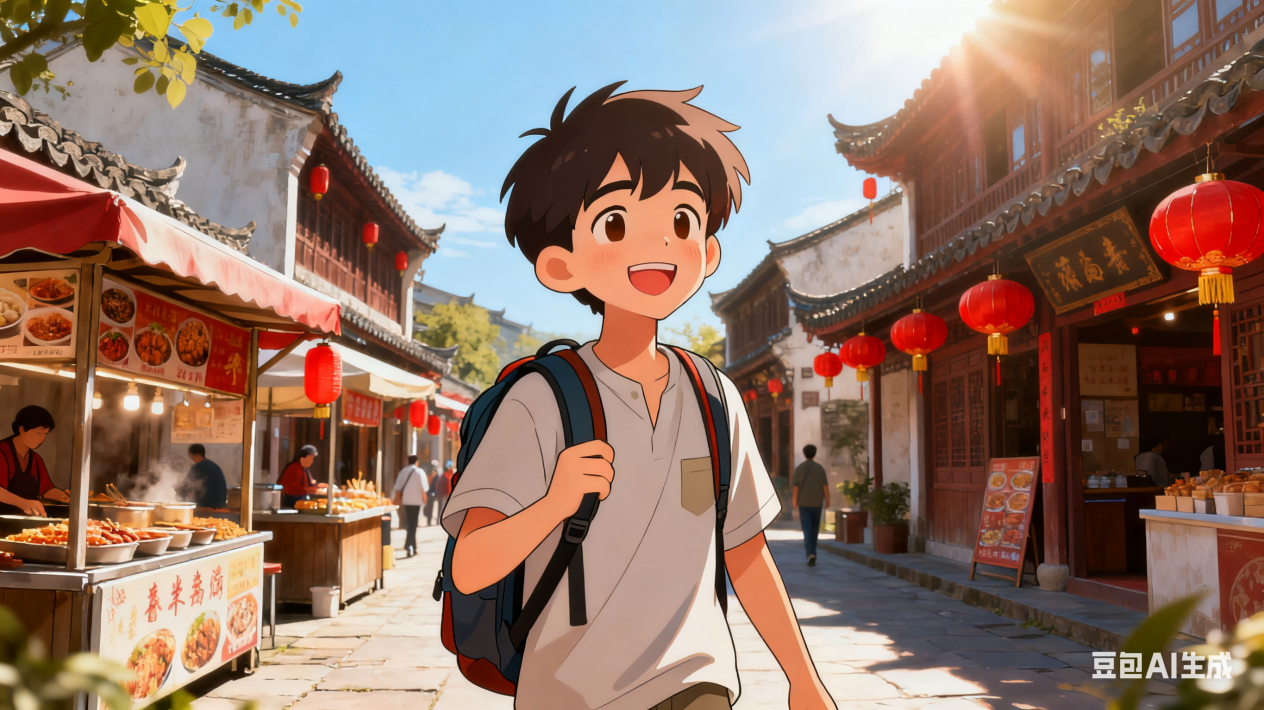
This year’s National Day holiday has seen a big travel rush across China. Many people have a long break, so travel bookings have gone up a lot. And young travelers born in the 1990s and 2000s are a large part of the visitors. However, their travel style has changed a lot. Many young Chinese travelers say no to “check-in travel”—the old way of “sleeping on the bus and taking photos at stops”. Instead of shallow (浅的) sightseeing, they prefer deep cultural experiences.
Examples are everywhere. At Shanxi’s ancient Guanque Tower, tourists chat and recite poems with actors dressed like Tang Dynasty people. In Anhui’s Wuhu, an old customs house uses AR for fun digital shows. College student Yan Ting once wandered (闲逛) Quanzhou’s old town: she watched locals make tea, chatted with them and enjoyed nanyin, a traditional music. “Local life is more attractive than hot spots,” she said. Wang Zixuan loved his time in Sanya—walking on the beach at sunrise and sitting to relax. Data shows searches for “intangible cultural heritage hands-on experiences”, “starry sky camping” and “city walks” rose 200% in 2025, with 70% of orders from post-90s and post-00s.
Some young people even try volunteer travel. In Guizhou’s Miao villages, they help record oral histories and traditional embroidery. “We want to give something to the place, not just take memories,” said one volunteer. More travelers now stay in small local hotels, eat at family restaurants and join charity work like trash cleaning. This new travel style helps them connect deeper with culture and local life.
原创编写 版权所有 侵权必究! 每日更新 个性化阅读 英语飙升!





 更多优质学习内容
更多优质学习内容



